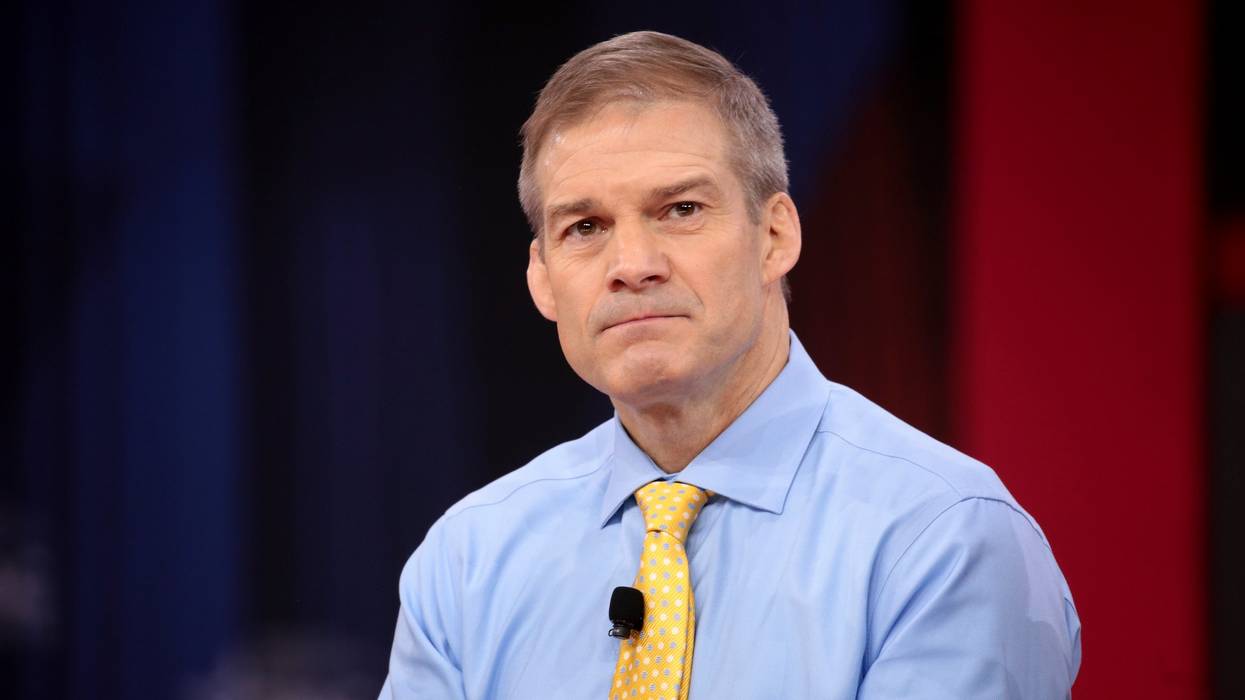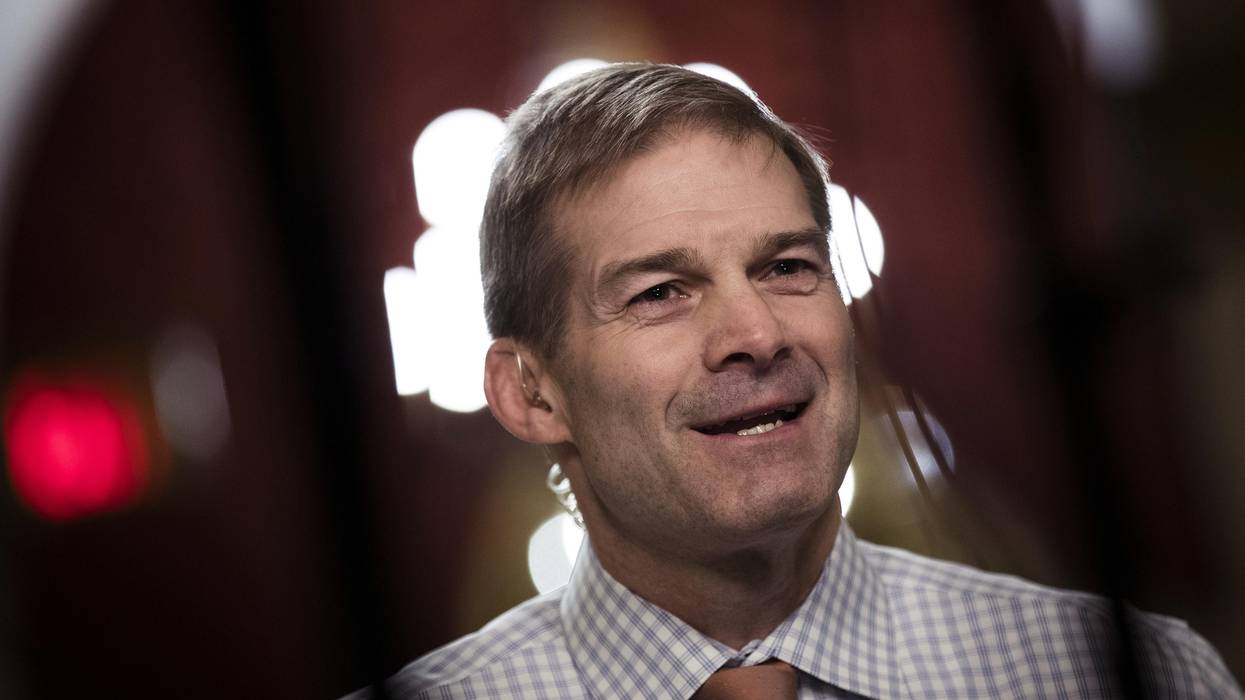GOP Lawmakers Caught Plagiarizing Bank Lobbyist Talking Points
"We bet it was super easy for Patrick McHenry and Andy Barr to decide their position on predatory overdraft fees, since all they did is copy and paste whatever Big Banks said."
A pair of Republican lawmakers on the House Financial Services Committee issued a statement last week criticizing a new Consumer Financial Protection Bureau proposal aimed at cracking down on predatory overdraft fees, claiming the rule would harm consumers.
But they didn't mention that parts of their criticism of the rule precisely mirrored the talking points of the Consumer Bankers Association (CBA), a lobbying group that represents financial institutions that rake in huge profits by hitting their customers with often unexpected overdraft charges. The group's membership list includes JPMorgan Chase, Bank of America, Citigroup, and Wells Fargo as well as smaller banks from around the country.
Rep. Patrick McHenry (R-N.C.), the chair of the House Financial Services Committee, and Rep. Andy Barr (R-Ky.) said in their statement that the CFPB's rule reflects "the Biden administration's attempts to mandate one-size-fits-all consumer financial products and services."
"We urge the CFPB to withdraw this misguided proposal that harms the very consumers the agency was created to protect," the GOP lawmakers added.
As Politico's Caitlin Oprysko pointed out late Tuesday, McHenry and Barr's response bears a close resemblance to language used by CBA president Lindsey Johnson, who warned the consumer agency's "misguided proposal" and "one-size-fits-all approach" could "undo years of progress" that banks have purportedly made in reforming their overdraft policies.
"Shilling for their financial industry megadonors has become so involuntary and routine that they're now literally copying and pasting talking points from banking lobbyists."
The similarities between the Republican lawmakers' response to the rule and CBA talking points become more glaring further down in McHenry and Barr's statement, which says that "consumers must proactively opt-in to use overdraft services."
Oprysko observed that the CBA uses the same exact wording on a website it launched earlier this month in opposition to the CFPB's overdraft rule, which the agency estimates could save U.S. consumers more than $3.5 billion in fees per year.
"Consumers must proactively opt-in to use overdraft services," the website reads, adding that "consumers can discontinue overdraft services at any time."
McHenry and Barr similarly say that consumers "can discontinue these services at any time." The lawmakers and CBA also "both highlight the same 2023 survey finding about consumer sentiment toward overdraft services and the same quote from a Biden administration financial regulator," Oprysko noted.
A spokesperson for CBA told Politico that the lobbying organization did not coordinate with McHenry or Barr on their responses to the rule but that "we like their message and agree with it." A Barr spokesperson told the outlet that the responses were so similar because the CFPB's proposal is "clearly problematic."
Liz Zelnick, director of the Economic Security and Corporate Power program at the progressive watchdog group Accountable.US, said in a statement Wednesday that "for Chairman McHenry and Rep. Barr, shilling for their financial industry megadonors has become so involuntary and routine that they're now literally copying and pasting talking points from banking lobbyists and trying to pass it off as their own."
"But what's more unethical is that McHenry and Barr continue to claim consumers should be grateful for hidden and excessive overdraft fees when their only real purpose is to pad profits for big banks and credit unions," said Zelnick. "McHenry and Barr can appease bank CEOs and lobbyists all they want by parroting industry misinformation, but they should at least be honest that they're doing it at the expense of consumers, not to their benefit. The fact remains, the Biden administration crackdown on excessive overdraft penalties like a $42 charge on a gallon of milk will directly benefit consumers by lowering their costs."
According to the CFPB, around 23 million U.S. households pay overdraft fees every year, often getting hit with $35 charges even though overdrafts are typically less than $26.
The agency said in a statement last week that its rule would "close an outdated loophole that exempts overdraft lending services from longstanding provisions of the Truth in Lending Act and other consumer financial protection laws." The rule would apply to banks with more than $10 billion in assets.
The proposed rule garnered enthusiastic praise from consumer advocacy organizations.
Kimberly Fountain, consumer field manager at Americans for Financial Reform, said that "curbing abusive overdraft fees will help stop Wall Street from padding its bottom line with the hard-earned money of millions of families in the United States."
"Overdraft fees are not so much a useful service as they are a lucrative profit center underwritten by the most economically vulnerable consumers," Fountain added.


